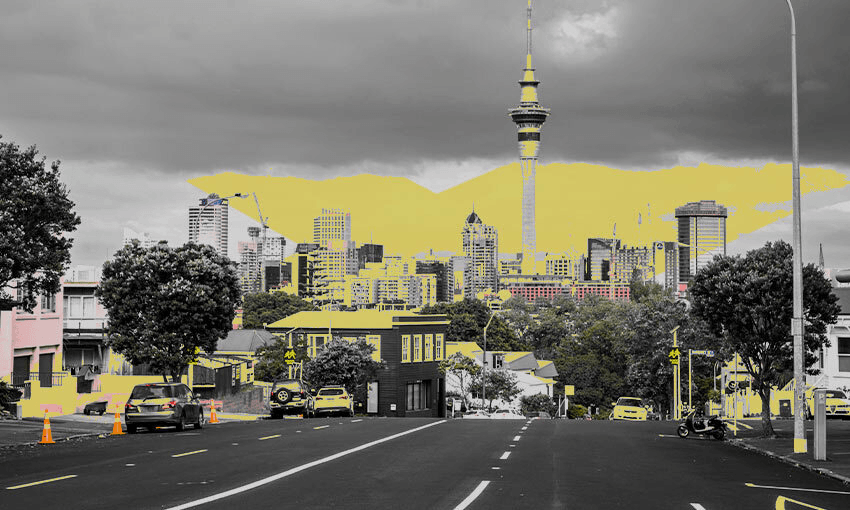With the highest number of daily cases since the start of the pandemic announced yesterday, the argument to raise alert levels again is growing stronger.
Yesterday, 94 new Covid-19 cases were announced. That’s New Zealand’s highest daily total of community Covid cases since the start of the pandemic. Those alarming numbers, coupled with dangerously low vaccination rates mean we need a change of direction. And it needs to happen fast.
Māori, Pasifika and Tauiwi epidemiologists, modellers and public health experts have joined a chorus over the last week calling for Auckland to shift back to level four. The government should listen. In fact, it’s their responsibility to listen.
Despite feeling grateful that we didn’t shift down alert levels on Monday, it’s simply not enough. Auckland very clearly needs a circuit breaker. Picnics and takeaways were a lovely respite from our now two month lockdown, but they’re not worth lives.
At this point, with this much spread, elimination might be near impossible to get back to. I’ll always believe our step down to level three was premature, and it seems clear to me that there’s a correlation between looser restrictions and rising case numbers. Without a working time machine, however, the only thing we can do now is change what we do next. That needs to be a move to level four.
A level four circuit breaker at the very least gives us a chance to suppress cases, buying us time to get our vaccination rates higher. That’s particularly necessary for Māori who are overrepresented in the current outbreak and massively underrepresented in vaccinations.
I had a long cry after the government announced the step down to the end of elimination. Every day since, I’ve woken up to a deep sinking feeling in the pit of my puku. And it doesn’t really ever go away. When I’m walking through the park next to my flat, I wonder if the masked people around me feel the same. My spare time is spent unpicking anti-vax articles sent to me by vaccine hesitant whānau and friends. Lockdowns are exhausting, but even more exhausting is the entirely foreseeable situation that our current trajectory is setting us up for.
We see it in the notable lack of Māori at the 1pm press briefings, we see it in the repetitive advice from Māori experts that the government ignored. In Monday’s press briefing, the prime minister equated Māori consultation on the response with business consultation. Considering that the government exists based on a treaty of partnership with Māori, it’s a pressing issue that Māori have been so left out in all aspects of the design and implementation of this response. Especially when it’s been established that the impacts will likely be most dire for Māori if we don’t take swift action.
Some days I contemplate the discontent this will breed in the future. The damaging effects on our treaty partnership going forward.
This isn’t anything new. And unfortunately it’s this repetitive cycle that sees Māori health, and by extension Māori lives, devalued again and again. Crystalising hundreds of years of inequity that successive governments have failed to address.
We can say with certainty that lockdowns are not good for the vast majority of small businesses. We can also say with certainty, from overseas experience, that mass spread of a potentially deadly virus is also very bad for small businesses. More importantly, it’s not good for people.
Because of this, it’s important to acknowledge that a call for a circuit breaker needs to come with sturdy support for struggling businesses. Keeping businesses afloat in this outbreak shouldn’t rely on workers and consumers being put at risk.
Beyond this, broader support needs to be put in place for everyone. This especially means students, renters, parents, people on benefits, vulnerable people and workers. It’s inequity that has made this Covid outbreak more complex, and potentially more difficult to contain. Giving people what they need to get through this comfortably is really the only way to get everyone on board.
The lockdowns and elimination strategy hinged on the promise of collectivism. That approach established a way of doing things that in many ways felt revolutionary, in that it centred the value of people’s lives – even if it didn’t align with much other government policy.
Neither the pandemic nor any other issues we face today will be solved by individualism. The staunchly empathetic decision-making that has characterised our pandemic response offered hope that we could collectively solve contemporary issues – housing crisis, climate change, inequality, racism – in the same way.
We’ve seen how most of us in Aotearoa are willing to make sacrifices for the greater good of whānau, friends and importantly strangers too. And we certainly saw a glimmer of that remaining unified response over the weekend with Super Saturday.
But the shift from elimination as a strategy has felt crushing and it’s demanded a huge psychological shift for our population.
The suggestion that we’ve lost the public will for lockdowns undermines those who are willing.
I miss the clattering sounds of cafes. I miss opshopping. I miss “just browsing” in shops. I miss last-minute dinner plans with friends after work. I miss dancing in a club that needs more air-conditioning. I’d love to go to a live comedy show at Basement. I haven’t seen my Wellington-based boyfriend in three months. I wish I could visit my grandma and paint her nails her favourite colour, yellow. Still, I want level four.
Young people aren’t ambivalent about death or people getting sick. I’m horrified by the risk the loosening of restrictions poses for kaumātua, children, immunocompromised and people with preexisting conditions. Each of these people are taonga.
In spite of the message implied by the government’s recent decision making, I remind myself that our lives do matter and we still have time to turn this around. We should do everything we can to not leave anyone behind.
